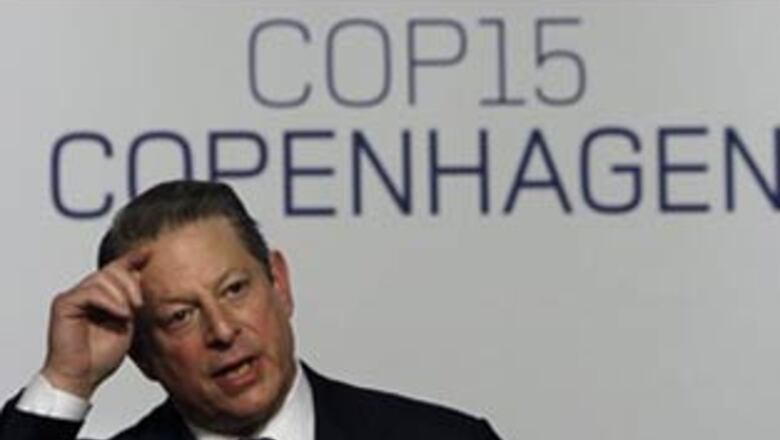
views
Copenhagen: While rich countries are blaming India and China for the lack of progress towards an agreement at the climate summit here, the blame for it should lie squarely with the rich countries, says a senior official of the international NGO WWF.
"The lack of ambition by industrialised countries to mitigate emissions of greenhouse gases (GHG) is a disaster," WWF Head of Climate Policy Kim Carstensen said.
"I am still hoping we'll be able to make them improve their commitments, for example, to make the EU increase its (GHG reduction) commitment from 20 per cent to 30 per cent.
"I'm also hoping that we can make Japan hold on to the high end of the commitments it has made. Russia can do much more than the 25 per cent reduction it has announced, and we are hoping it will," he said.
Carstensen was also unhappy with the rich countries for not offering more money to help poor nations cope with the effects of the climate change that the rich had caused. They have promised $10 billion a year for the next three years, the so-called fast-track finance. Even the most conservative estimate - done by the World Bank - puts the requirement by developing countries at $75 billion a year.
"The fast-track finance that has been promised is nice, but it does not make sense without long-term finance," Carstensen told IANS. "Without that, developing countries have no idea where the current financing is leading to."
Asked why advanced countries were not forthcoming with their financing commitments, he replied: "They are scared because their economies are in bad shape. They cannot easily find the money developing countries are asking for. They're scared of these figures, especially when they have huge budget deficits.
"Plus, of course, there are vested interests in these countries. Despite that, we hope we can get meaningful figures on the table."
The one area in which the WWF climate policy chief was happy was transfer of green technologies. India's idea of setting up regional centres for this purpose has been accepted by other governments attending the UN Framework Convention on Climate Change conference. But, Carstensen pointed out, the idea needed to be "fleshed out. We have to see what the mandate of these centres will be - whether they will be able to buy patents", the main obstacle in technology transfer.
Asked to react to the strong possibility that the Copenhagen summit will not be able to come up with any legally binding deal, Carstensen said: "It is really important to get the deal sealed now. We need specific commitments, with clarity on who is doing what.
"We have the political momentum now. At last count, 120 heads of state and government are supposed to come here this week. This will not be repeated soon, and we must take full advantage of this opportunity."
The civil society "needs to push hard now", Carstensen said, so that governments "make their commitments precise and we can have better legally binding agreement. We need definitely more than a political declaration with generalities".
Asked if he agreed with rich country governments that emerging economies like India and China were being obstructionist at the ongoing summit, Carstensen disagreed strongly. "It's just a very carefully measured response. But remember these countries have been forthcoming with what they are willing to do, which the rich countries have not.
"This is an indication of their willingness to play ball. They announced steps that they did not have to. The only thing more they can do now is to say what actions they will take if rich countries are willing to pay."


















Comments
0 comment